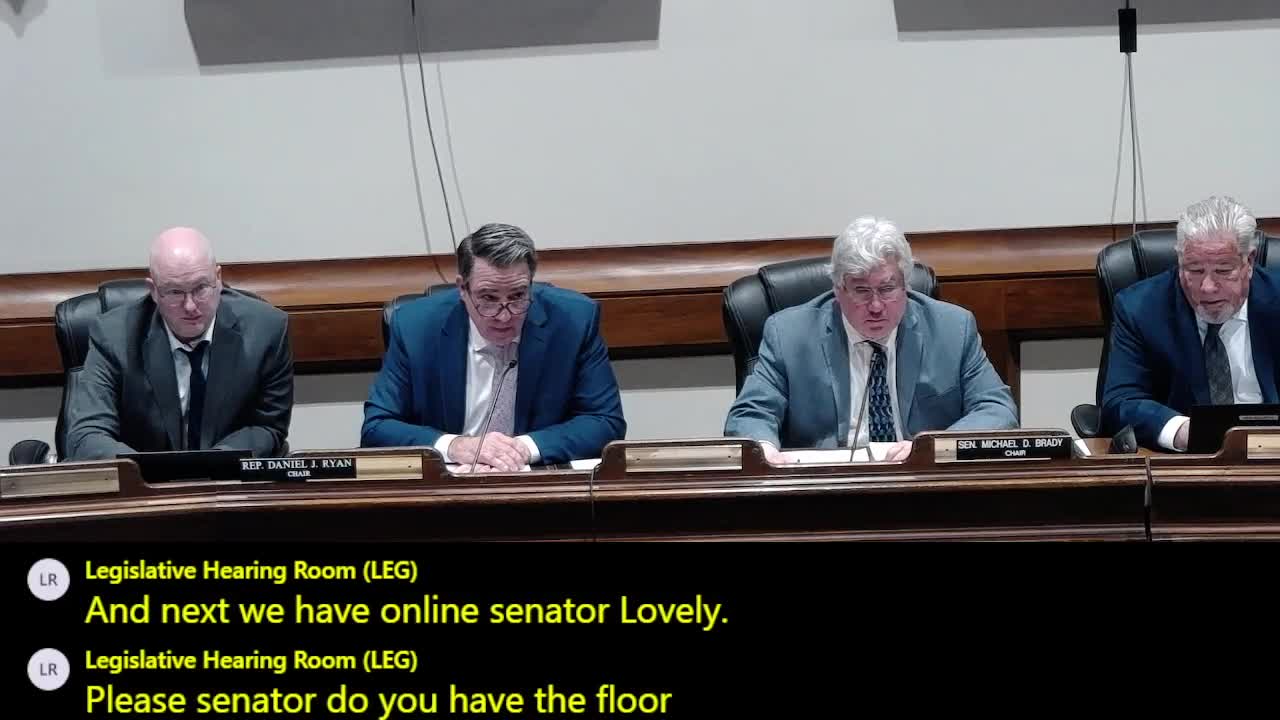Committee hears wide array of retirement and pension bills, from SMART Plan auto-enroll to pension reporting and divestment proposals
Get AI-powered insights, summaries, and transcripts
Subscribe
Summary
Lawmakers and retirement-system officials used a Joint Committee on Public Service hearing to present several separate bills aimed at changing retirement benefits, employer rules, reporting and investment policies for state and municipal employees.
Lawmakers and retirement-system officials used a Joint Committee on Public Service hearing to present several separate bills aimed at changing retirement benefits, employer rules, reporting and investment policies for state and municipal employees.
Supporters of automatic enrollment testified in favor of expanding the SMART Plan, the state's low-cost deferred compensation program. Senator Lovely, testifying remotely, described the SMART Plan as a "high quality low cost retirement savings program available to Massachusetts state and municipal employees" and said auto-enrollment with an opt-out would improve retirement outcomes. Edward Boynton, a Braintree middle-school teacher and president of his local MTA chapter, urged support for House Bill 39, calling automatic enrollment a way to protect educators from high-fee private supplemental plans.
Several agency witnesses described administrative and statutory fixes to existing public-retirement law. Bill Keefe, executive director of the Public Employee Retirement Administration Commission (PERAC), asked for favorable reports on H.22 through H.25 and outlined H.22 as a measure to provide "statement of financial interest" (SFI) filing flexibility for retirement board members; among other changes it would allow exemptions for members serving less than 30 days in a calendar year and permit the PERAC commissioner to grant waivers for late filers under extenuating circumstances. Keefe also described H.23, addressing the purchase of credible service and requiring employees of entities that recently joined the state system to buy prior service rather than receive it for free, and H.24, clarifying the definition of wages in chapter 32 to include sick, vacation and personal time going forward.
The Massachusetts Teachers' Retirement System (MTRS) executive director, Jonathan Osmo, urged support for House Bill 31, which would impose monetary penalties on employers who are noncompliant with pension data reporting requirements, saying delayed reporting harms members' records and the system's ability to process retirements and refunds. MTRS also asked the committee to consider a study of the costs and benefits of all service-purchase categories under chapter 32 to evaluate whether purchase rules should be standardized to better align member costs with benefit increases.
A separate witness, Matthew Nugent of Beverly, testified in favor of House Bill 49, which would require public pension funds to divest from ammunition and firearms manufacturers. Nugent cited examples from other states and urged the committee to advance the bill on financial and ethical grounds.
What was not decided: No formal votes occurred. Committee chairs asked clarifying questions and thanked witnesses; some committee members asked technical follow-ups (for example, on how regional transit authorities join the state retirement system), but no bills were voted on during the hearing.
Why it matters: The package of bills addresses multiple policy levers — default enrollment, broadened access to deferred compensation, administrative relief for board members, employer reporting enforcement, purchase-of-service costs, and pension investment standards — that collectively could affect retirement security for thousands of public employees and the fiscal health of the Commonwealth's retirement systems.
Next steps: Witnesses said they would submit written testimony on specific bills and are seeking favorable reports; the committee did not set votes during this session.
